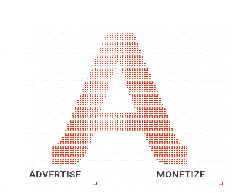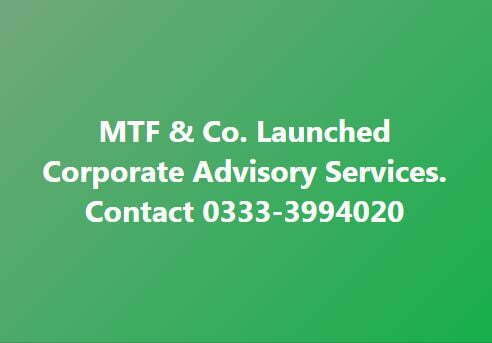Day 2: IFRS Regulatory Bodies
Welcome to Day 2 of our IFRS course! Yesterday, we introduced the concept of IFRS and its importance in global financial reporting. Today, we will delve into the regulatory bodies that oversee the development and implementation of IFRS. These regulatory bodies play a crucial role in ensuring that IFRS standards are developed and implemented in a consistent and effective manner.
Role of IASB (International Accounting Standards Board)
The International Accounting Standards Board (IASB) is an independent, not-for-profit organization responsible for developing and issuing International Financial Reporting Standards (IFRS). The IASB was established in 2001 and is based in London, UK. Its primary objective is to develop a single set of high-quality, understandable, and enforceable global accounting standards.
The IASB has several key responsibilities, including:
- Developing new standards: The IASB develops new IFRS standards through a rigorous due process, which involves consultation with stakeholders, exposure drafts, and final approval by the IASB.
- Revising existing standards: The IASB reviews and revises existing IFRS standards to ensure they remain relevant and effective.
- Providing guidance: The IASB guides the application of IFRS standards through various means, including interpretations, implementation guidance, and educational materials.
- Promoting adoption: The IASB promotes the adoption of IFRS standards globally, working with regulators, standard-setters, and other stakeholders to facilitate their implementation.
The IASB is composed of 14 members, who the IFRS Foundation Trustees appoint. The members are selected based on their technical expertise, experience, and geographical representation. The IASB members serve for a term of five years, with the possibility of reappointment for a further term.
IFRS Foundation, IFRIC, and SIC
The IFRS Foundation is the parent organization of the IASB, responsible for overseeing the development and implementation of IFRS. The IFRS Foundation has several key components, including:
- IFRIC (International Financial Reporting Interpretations Committee): IFRIC is a committee of the IASB that provides guidance on the application of IFRS standards. IFRIC issues interpretations, which are binding on companies that apply IFRS.
- SIC (Standards Interpretation Committee): SIC is a committee of the IASB that provides guidance on the application of IFRS standards. SIC issues interpretations, which are binding on companies that apply IFRS.
- IFRS Advisory Council: The IFRS Advisory Council is a group of experts that provides advice to the IASB on various matters, including the development of new standards and the implementation of existing ones.
The IFRS Foundation is governed by a Board of Trustees, which is responsible for overseeing the IASB’s activities and ensuring that the IFRS Foundation operates in accordance with its constitution. The Board of Trustees is composed of 22 members, who the IFRS Foundation appoints.
Concept of Standard Setting
Standard setting refers to the process of developing and issuing accounting standards. The IASB uses a rigorous due process to develop new IFRS standards, which involves the following steps:
- Identifying the need for a new standard: The IASB identifies areas where new or revised guidance is needed.
- Developing a discussion paper: The IASB develops a discussion paper, which outlines the issues and proposed solutions.
- Exposure draft: The IASB issues an exposure draft, which is a draft of the proposed standard.
- Comment period: The IASB invites comments from stakeholders on the exposure draft.
- Final approval: The IASB reviews the comments and finalizes the standard.
The IASB also engages with stakeholders through various means, including public meetings, webcasts, and outreach activities. This ensures that the IASB is aware of the needs and concerns of stakeholders and can develop standards that meet their requirements.
History of IFRS
The concept of IFRS has been around for several decades, but it wasn’t until the 1990s that the idea of a single set of global accounting standards began to take shape. In 1993, the International Accounting Standards Committee (IASC) was established, with the goal of developing a set of international accounting standards.
In 2001, the IASC was replaced by the IASB, which was established as an independent, not-for-profit organization. The IASB was tasked with developing a single set of high-quality, understandable, and enforceable global accounting standards.
Since its establishment, the IASB has made significant progress in developing and implementing IFRS standards. Today, IFRS is used in over 140 countries around the world, and is widely recognized as the global standard for financial reporting.
Benefits of IFRS
The adoption of IFRS has several benefits, including:
- Improved comparability: IFRS provides a common language for financial reporting, making it easier for investors and other stakeholders to compare the financial performance of companies across different countries and industries.
- Increased transparency: IFRS requires companies to provide more detailed and transparent financial information, which helps to build trust and confidence in the capital markets.
- Reduced costs: The adoption of IFRS can reduce the costs associated with financial reporting, as companies no longer need to prepare multiple sets of financial statements.
- Improved decision-making: IFRS provides a framework for financial reporting that is based on consistent and comparable principles, which helps investors and other stakeholders to make more informed decisions.
Challenges of IFRS
Despite the benefits of IFRS, there are also several challenges associated with its adoption and implementation. These challenges include:
- Complexity: IFRS is a complex and nuanced set of standards, which can be difficult to understand and apply.
- Cost: The adoption of IFRS can be costly, as companies need to invest in training and resources to ensure that they are able to apply the standards correctly.
- Enforcement: The enforcement of IFRS is not always consistent, which can lead to differences in the way that companies apply the standards.
- Cultural differences: IFRS is a global standard, but it is not always easy to apply in different cultural and regulatory environments.
Future of IFRS
The future of IFRS is likely to be shaped by several factors, including the increasing demand for transparency and accountability in financial reporting, the growing importance of sustainability and environmental reporting, and the need for more effective and efficient standard-setting processes.
The IASB is already working on several initiatives to improve the effectiveness and efficiency of the standard-setting process, including the development of a new conceptual framework for financial reporting and the introduction of a new standard for revenue recognition.
Conclusion
In conclusion, the IFRS regulatory bodies play a crucial role in developing and implementing IFRS standards. The IASB, IFRS Foundation, IFRIC, and SIC all work together to ensure that IFRS standards are developed and implemented in a consistent and effective manner. The adoption of IFRS has several benefits, including improved comparability, increased transparency, reduced costs, and improved decision-making. However, there are also several challenges associated with the adoption and implementation of IFRS, including complexity, cost, enforcement, and cultural differences. As the demand for transparency and accountability in financial reporting continues to grow, the future of IFRS is likely to be shaped by several factors, including the increasing importance of sustainability and environmental reporting and the need for more effective and efficient standard-setting processes.
Recommendations
Based on the information presented in this blog post, we recommend that companies and organizations consider the following:
- Stay up-to-date with the latest IFRS developments: The IASB and IFRS Foundation regularly issue new standards and guidance, so it’s essential to stay informed about the latest developments.
- Invest in training and resources: The adoption of IFRS can be complex and nuanced, so it’s essential to invest in training and resources to ensure that you are able to apply the standards correctly.
- Consider seeking professional advice: If you are unsure about how to apply IFRS standards or need help with implementation, consider seeking professional advice from a qualified accountant or financial advisor.
- Take advantage of bookkeeping services: Bookkeeping services can help you manage your financial records and ensure that you are complying with IFRS standards. Consider using a reputable bookkeeping service, such as MTF Co. at onewebonehub.com, to help you achieve your financial goals.
Additional Resources
For more information about IFRS and the IFRS regulatory bodies, we recommend the following resources:
- IASB website: The IASB website provides a wealth of information about IFRS standards, including the latest developments and guidance.
- IFRS Foundation website: The IFRS Foundation website provides information about the IFRS Foundation, including its mission, goals, and activities.
- IFRIC website: The IFRIC website provides information about IFRIC, including its role and responsibilities.
- SIC website: The SIC website provides information about SIC, including its role and responsibilities.
- One Web One Hub website: The MTF Co. website provides information about bookkeeping services, including financial statement preparation, accounts payable and receivable management, and payroll processing.
We hope that this blog post has provided you with a comprehensive overview of the IFRS regulatory bodies and their roles in developing and implementing IFRS standards. If you have any questions or need further information, please don’t hesitate to contact us.
Bookkeeping Services @ One Web One Hub 
Are you looking for reliable and efficient bookkeeping services to help you manage your financial records? Look no further than MTF Co. at onewebonehub.com! Our team of experienced bookkeepers provides high-quality bookkeeping services, including financial statement preparation, accounts payable and receivable management, and payroll processing. We use the latest accounting software and technology to ensure accurate and timely financial reporting. Contact us today to learn more about our bookkeeping services and how we can help you achieve your financial goals.
Previous Post International Financial Reporting Standards (IFRS)












